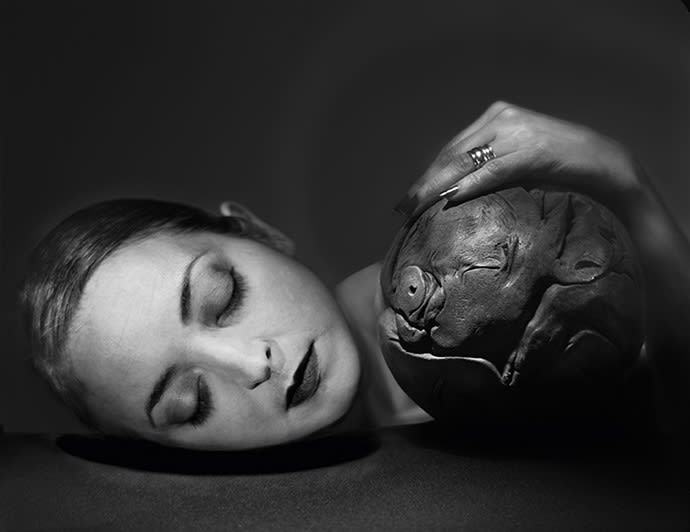Tunga
Pernambuco, Brazil, 1952 - Río de Janeiro, Brazil, 2016
Brazilian artist, Antônio José de Barros Carvalho e Mello Mourão, better known as Tunga, explores how man relates to the earth, nature, and energy. Self-defined as an alchemist, he creates works of radical density, exploring the archaic transmutation of his materials: earth, stone, asphalt, rubber, iron, leather, glass, wood, and bronze, among others. His work is characterized by an energy that condenses dynamism and disruption. Born in Pernambuco, Tunga studied Architecture and Urbanism in Rio de Janeiro. It was there where he began his career in the arts in the 1970s, with drawings and sculptures.
One of his most acclaimed series consists of snakes braided with different materials, such as metals, fabrics, and even—usually in performances—real snakes. The importance of braiding in his work is fundamental; as a repetition, it seems to function as a ritual, a kind of woven rosary, forming an infinite weave. Furthermore, the tribal and energetic aura of this reptile, its constant proximity to the ground, and its enveloping movement, condense danger and sensuality. Snakes are also, in some cultures, linked to hypnosis. In repetition, we find a way to identify ourselves and confirm our identity, understanding the space we inhabit and manifesting our will to build ourselves as individuals.
Throughout his career, Tunga cultivated an eccentric character that, hand in hand with a great oratory capacity, captivated anyone who sought to enter his suggestive and stimulating world. In the early 1980s, his strong, playful inclination led him to propose that, businessman, Bernardo Paz build the Inhotim, now recognized as one of the ten best museums in the world. Leaving a legacy of complex social entanglements and an irrevocable mark on the artistic milieu, Tunga dies in 2016, at the age of 64, after a long battle with cancer. His work, to this day, is part of the most important collections and museums in the world.


